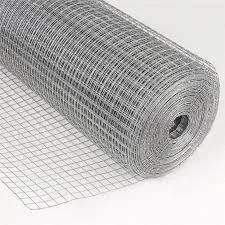10 月 . 12, 2024 07:33 Back to list
types of roofing nails
Types of Roofing Nails A Comprehensive Overview
When it comes to roofing, the choice of nails is crucial for ensuring the durability and effectiveness of your roof. Roofing nails are specifically designed to provide a secure hold for shingles, tiles, and other roofing materials. Understanding the various types of roofing nails available can help homeowners and contractors make informed decisions about their roofing projects. In this article, we will explore the different types of roofing nails, their materials, and their applications.
1. Metal Roofing Nails
Metal roofing nails are commonly used with metal sheathing and metal tiles. These nails are typically made of galvanized steel or stainless steel to prevent rusting and ensure longevity. The size and shape of these nails can vary, but they generally feature a larger head to secure the roofing material tightly and prevent water from seeping underneath. Metal roofing nails often have a smooth or spiral shank, enhancing their holding power.
2. Asphalt Shingle Nails
Asphalt shingles are prevalent in residential roofing, and the nails used with them are designed specifically for shingle installation. Asphalt shingle nails are usually made of galvanized steel to withstand the elements. These nails have a thin, smooth shaft that allows for easy penetration into the roofing deck. The head is wider than that of standard nails, which helps in distributing pressure and preventing the shingle from tearing. Some asphalt shingle nails also come with an additional coating to enhance their corrosion resistance.
types of roofing nails

Similar to asphalt shingle nails, fiberglass shingle nails are designed for use with shingles that contain a fiberglass mat. These nails are often made of stainless steel or galvanized material, offering excellent resistance to corrosion. Fiberglass shingle nails may also feature a unique head design that helps in keeping the shingles securely fastened. When using fiberglass shingles, it is important to select nails specifically designed for that purpose to ensure the best results.
4. Roofing Cap Nails
Roofing cap nails, also known as roofing felt nails, are mainly used for securing roofing felt or underlayment before the final roofing material is placed. These nails typically have a round, large head to provide broad support and are available in different lengths. The shank is usually smooth, which allows for easy installation. Roofing cap nails are essential in preventing water damage by ensuring that the underlayment is properly secured.
5. Hurricane Clips and Fasteners
In areas prone to severe weather, additional reinforcement is often necessary. Hurricane clips and special fasteners are designed to secure the roof structure to the walls of the home, preventing it from lifting during high winds. These fasteners are specially designed to withstand harsh conditions and are a vital component for roofs in hurricane-prone regions.
Conclusion
Selecting the right type of roofing nail is critical for the longevity and performance of your roof. Whether you are dealing with metal roofing, asphalt shingles, or specialized underlayment, understanding the various types of roofing nails will help ensure a secure and durable installation. When in doubt, always consult a roofing professional to determine the best options for your specific roofing needs. By making informed choices, you can dramatically increase your roof's lifespan and protect your home from the elements.
-
Secure Your Roof with Quality Roofing Nails
NewsNov.04,2024
-
Secure Your Property with Quality Field Fencing
NewsNov.04,2024
-
Enhance Your Space with Quality Mesh Fencing
NewsNov.04,2024
-
Discover the Versatility of Iron Wire for Your Projects
NewsNov.04,2024
-
Discover the Versatility of Common Nails for Your Projects
NewsNov.04,2024
-
Discover Quality Hydraulic Fittings for Your Applications
NewsNov.04,2024









